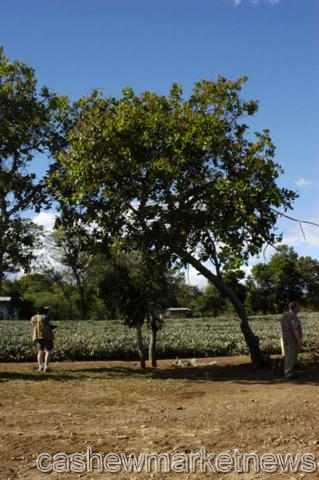Friday, March 4, 2011
How to make money processing and exporting cashew nuts
 With the emphasis by the Federal Government on non-oil export pro-grammes, the cashew industry is experiencing a major turn around.
With the emphasis by the Federal Government on non-oil export pro-grammes, the cashew industry is experiencing a major turn around.
There are three main cashew products traded in the International market – raw nuts, cashew kernels and cashew nut shell liquid (CNSL). A fourth product, the cashew apple, is generally processed and consumed locally. Market openings exist for cashew kernels in the world market, especially for low cost suppliers. Nigerians, with low labour cost and producer of raw cashew nuts, should cash in on these opportunities. The US is the largest buyer of cashew kernels followed by the Netherlands.
Cashew nuts are dried in the sun for two reasons:
• To reduce the moisture content of the nut; and
• To mature the seed in the infrared and ultra violet rays of the sun.
Storage: Technical requirements for storage are dependent on weather conditions. As cashew nuts are usually produced in climates with a long dry season, simple buildings with concrete floors and walls and roofs of corrugated metals, should provide adequate storage.
Processing: Cashew processing in the manual method is carried out in five basic steps which include roasting, shelling, drying, peeling of husk and manual grading.
• Roasting: Roasting is done in a hand rotated drum. Fire is set underneath the drum and after half an hour, raw nuts are introduced into the drum through a small opening. Then fire is ignited inside the drum to burn the introduced raw nuts. After visual inspection, when the nuts are well burnt, a small door of the drum is opened and the burning nuts are extinguished using water, followed by sprinkling of ash to dry the cashew nut shell liquid. Roasting capacity could be up to four times per day.
• Shelling: Shelling is done by hand. The processors are required to produce six kilogrammes of kernel per day on a normal floor.
• Drying: Drying is done in specially constructed ovens in drying sheds. Fire is lit below the oven by the use of firewood and inside the oven. Normally eight hours is required for adequate drying of the nuts. In the drying process, nuts on top are exchanged with those below to balance the whole process.
• Peeling of husk: Peeling of husk is also done by hand. Whole kernels are separated from the broken ones. By using hands, husks are removed. For difficult husks, small knives are used to peel after additional short time drying.
• Manual grading: Kernels are manually graded into their appropriate grades. The kernels are packed according to their grades into respective tins of 11.34kgs (25 lb) each. The tins are vacuumed, followed by introduction of carbon dioxide (CO2) before they are sealed by soldering. Sealed tins are observed for 24 hours so as to detect any leakage of gas. Finally, two tins are packed in a carton ready for export.
Where to find buyers
Buying agents are generally known as LBAs – Local Buying Agents. They comprise:
• Licensed buying agents who are generally large buyers and independent individual agents.
• Agents employed by the exporters and processors. Some work on commission basis.
• Village merchants/buying agents who generally work for large LBAs.
These categories of the LBAs are the closet to the farmers in the chain. Individual buying agents or small agents usually move from one village to the other to procure nuts from farmers, which they can later sell to big agents or licensed buying agents or to agents at the market place.
LBAs perform some important role in the market chains such as:
• Providing a ready market for the farmers produce due to their proximity to farmers
• Rendering financial advances to farmers for the crop
• Supplying to the exporters/processors large quantities of the commodity collected
• Engaging in inputs supplies and other goods that villagers need
Some of these buying agents are registered companies. The yare involved in large scale purchasing of cashew through other LBAs or directly through employed agents. Generally there are a number of LBAs operating as licensed traders working with village agents.
(Source: http://thenationonlineng.net/web3/business/agriculture/29696.html)

This post was written by: HaMienHoang (admin)
Click on PayPal buttons below to donate money to HaMienHoang:
Follow HaMienHoang on Twitter














0 Responses to “How to make money processing and exporting cashew nuts”
Post a Comment